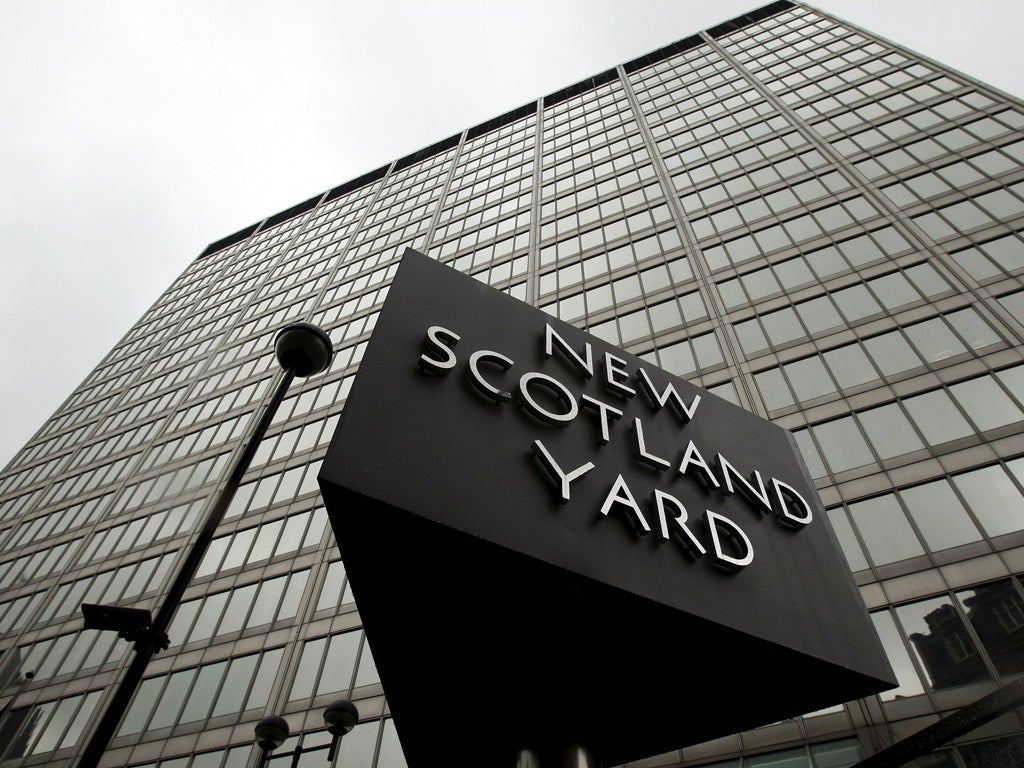A nice little earner: Metropolitan Police force receives over £22m from sponsors

Your support helps us to tell the story
From reproductive rights to climate change to Big Tech, The Independent is on the ground when the story is developing. Whether it's investigating the financials of Elon Musk's pro-Trump PAC or producing our latest documentary, 'The A Word', which shines a light on the American women fighting for reproductive rights, we know how important it is to parse out the facts from the messaging.
At such a critical moment in US history, we need reporters on the ground. Your donation allows us to keep sending journalists to speak to both sides of the story.
The Independent is trusted by Americans across the entire political spectrum. And unlike many other quality news outlets, we choose not to lock Americans out of our reporting and analysis with paywalls. We believe quality journalism should be available to everyone, paid for by those who can afford it.
Your support makes all the difference.Britain's largest police force was handed private donations and sponsorship worth £22.7m over the last five years, it has emerged.
The donations included football shirts given to the Metropolitan Police by Queens Park Rangers and Chelsea, as well as motorcycles and cars supplied by Land Rover, BMW and Nestlé.
The figures, obtained by the BBC following a Freedom of Information request, prompted clams that donors would expect preferential treatment from officers. But Scotland Yard insisted it had a "long history" of working with different partners to tackle crime.
Supporters of the perfectly legal practice pointed out that some organisations which require extra policing, such as football clubs on matchdays, should pay for it.
London Assembly Green member Jenny Jones questioned whether it was right for police to accept such donations. She said: "We have to ask, is the Met doing what they are paid to do by outside agencies, or what the public expects them to do?"
Between April 2007 and March this year, the force received at least 833 payments, with a number of police stations and units across London the beneficiaries.
According to the BBC, which submitted the FOI request, some of the donations were given to teams of officers working to reduce specific crimes or in specific areas. An oil security organisation helped pay for a police constable to reduce crime at petrol stations, while record company EMI donated 11 concert tickets.
The biggest single donor was the Association of Payment Clearing Services, which represents credit card firms. The organisation gave £11.9m in 21 instalments to help fund the fraud investigation unit called the Dedicated Cheque and Plastic Crime Unit.
Officers in this unit work alongside banking industry fraud investigators and is fully sponsored by the banking industry which invests nearly £5m per year in its operation.
The figures also show many local businesses across the force's boroughs donating patrol mountain bikes to help police their areas, while BMW and Land Rover UK donated support vehicles for royal protection and special branch.
In a statement the Met said funding from organisations was used in several areas of police activity such as the Dedicated Cheque and Plastic Crime Unit.
"Donations and sponsorship over £50,000 must be referred to the Deputy Mayor for Policing and Crime for approval. Such arrangements are subject to rigorous parameters. They do not make any of the statutory functions of the [Met Police] dependent on this funding nor does it allow for any companies to interfere with the duties of the police."
The Association of Chief Police Officers says in its guidance that such income generation can "help forces counter the effects of declining budgets and increasing pressure on resources".
It said sponsorship is subject to a one per cent limit of force's total annual income and the acceptance of sponsorship for non-core police activities is intended to extend and enhance the force's service to the community.
Keith Vaz, the Commons Home Affairs Committee chairman, said the Metropolitan police should "consider very carefully" whether any gifts "could be perceived as compromising the force's position".
He added: "The Home Affairs Committee is currently holding an inquiry into leadership and standards in the police, and we will be hearing from the commissioner on these matters."
Join our commenting forum
Join thought-provoking conversations, follow other Independent readers and see their replies
Comments